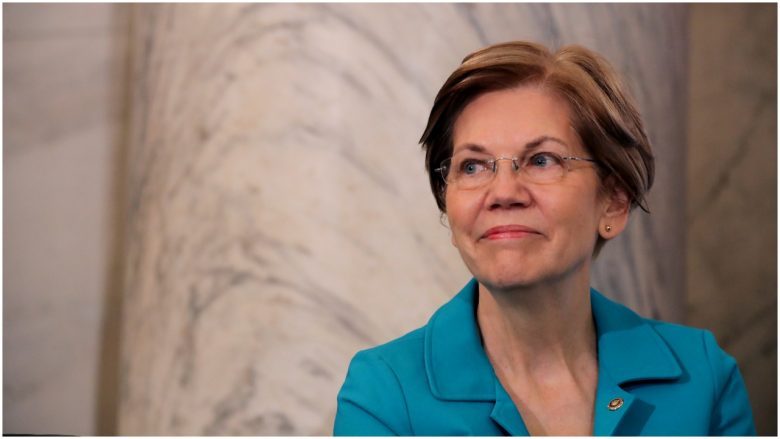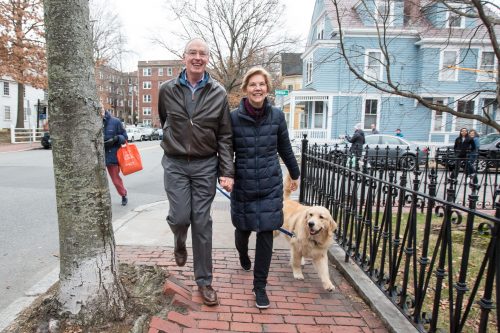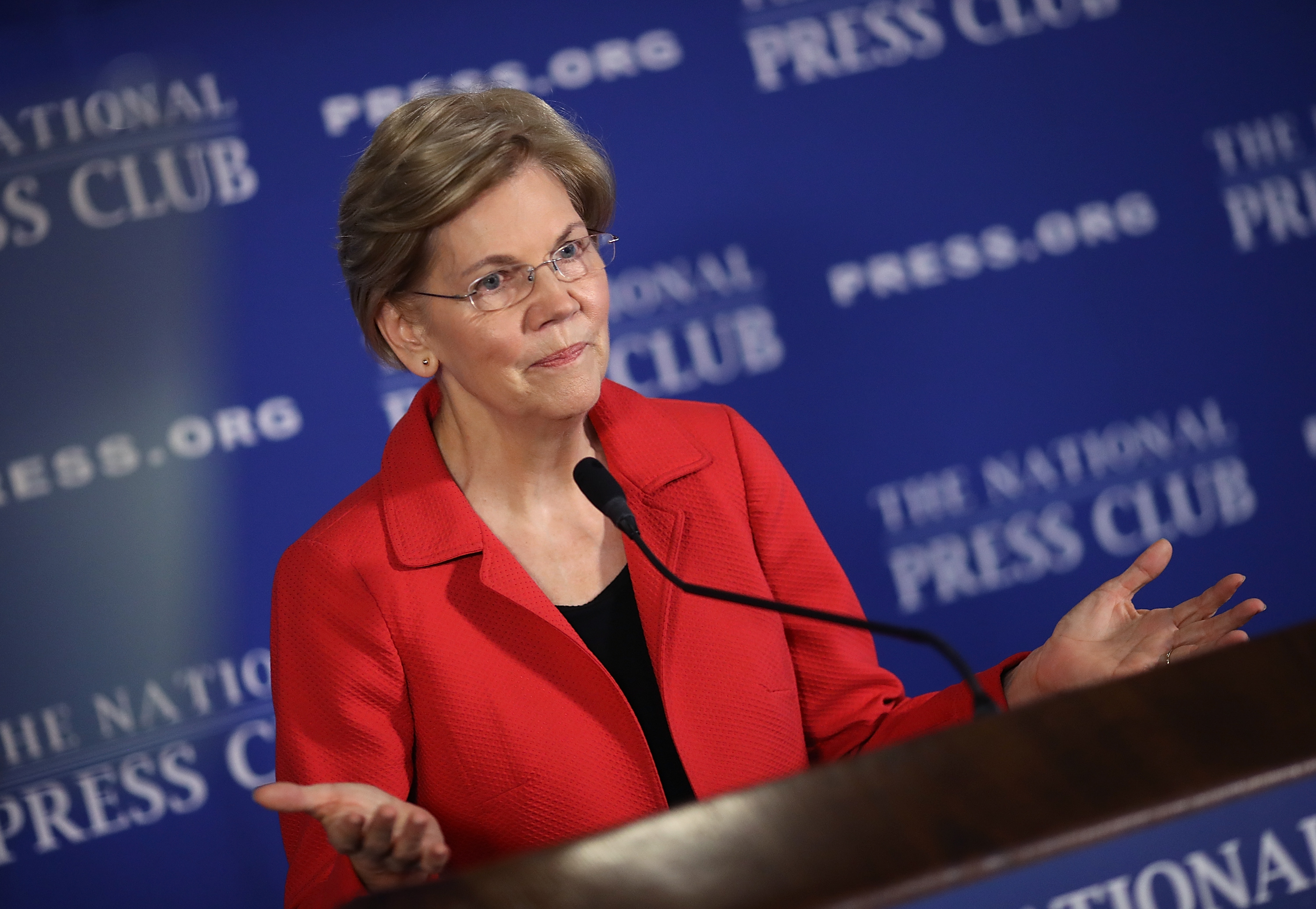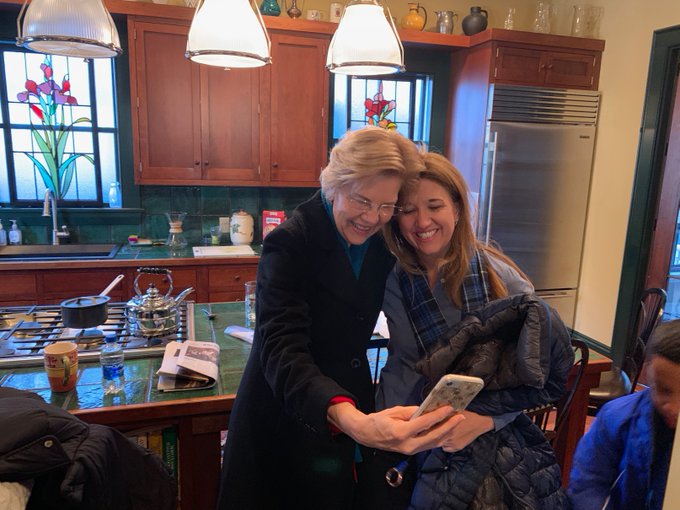
Massachusetts Senator Elizabeth Warren has been hinting at the possibility of a White House run for years. Ever since Warren was first elected to the Senate in 2012, there has been speculation that the former consumer advocate might take a run at the White House. In 2015, the Boston Globe’s editorial board called for Warren to run for president, writing, “Democrats need Elizabeth Warren’s voice in 2016 presidential race.”
Warren launched a 2020 “exploratory committee” on December 31. On February 9, Warren finally made it official, throwing her hat in the ring as another Democratic candidate for the presidential nomination in 2020. Massachusetts Representative Joe P. Kennedy III has given Elizabeth a rousing endorsement, talking up her record on economic issues which, he says, gives her an edge over other candidates in the already-crowded 2020 race.
Here’s what you need to know about Warren’s campaign:
1. Warren Launched Her Campaign from Lawrence, Massachusetts, a Poor Mill Town Known for Its Role in the Labor Movement
Warren officially launched her 2020 campaign from her home state of Massachusetts. But the senator didn’t go to Boston, or to Cambridge: instead, she opted to make her announcement from Lawrence, a former textile giant which has since become one of the poorest cities in the state. Lawrence was the site of the famous “bread and roses” labor strike in 1912. That strike quickly spread to tens of thousands of local workers and made headlines in national newspapers. It’s widely credited with making textile companies across New England improve working conditions and raise wages.
The city is of Lawrence now is 80 percent Latino and has a strong tradition of welcoming immigrants. “Lawrence has a history of working people coming together to make change,” Warren said, when she announced the location for her February 9 launch. But President Trump has singled out Lawrence as a hub for illegal drugs; his administration has pointed to the “sanctuary city” as a “clearinghouse” site for illegal drugs that pour into New England.
2. Warren Has High Name Recognition but Consistently Ranks Behind Biden, Sanders, & Harris in Polls

Getty
Recent polls of likely Democratic voters have Elizabeth Warren ranking well behind other likely Democratic candidates for the White House. A recent Monmouth University poll, released on February 4, put Warren in fourth place in the field of Democratic contenders. Former Vice President Joe Biden led the poll, garnering the support of 29% of Democratic voters; he was followed by Vermont Senator Bernie Sanders, who had the support of 16% of Democratic voters. California Senator Kamala Harris was backed by 11% of Democratic voters; Warren garnered 8% of likely Democratic voters.
The Monmouth poll found that Warren had high name recognition, placing just behind Joe Biden and Bernie Sanders in a list of potential candidates when respondents were asked about name recognition.
A recent Iowa poll by Emerson College also put Warren in fourth place, behind Joe Biden, Kamala Harris, and Bernie Sanders. That poll, conducted January 30 through February 2, found Biden had 29 percent of the vote. Harris is second at 18 percent. Bernie Sanders, who’s expected to enter the race but hasn’t made a formal announcement, is next at 15 percent. Warren came in fourth place at 11 percent.
3. Warren Continues to Face Intense Criticism Over Her Claims to be Native American
Donald Trump and other conservatives often jab at Warren for her claims that she has Native American ancestry. Warren, who was born and raised in Oklahoma, says she grew up hearing family stories about her Native American ancestors; one of Warren’s cousins is a member of the Cherokee Nation.
Trump and others say that Warren once claimed to be part Native American as a way of getting a job at Penn Law School. Warren has emphatically denied that she ever did this; the staff at Penn have also denied this.
In October 2018, Warren released DNA results which, she said, proved that she had some Native American ancestry. But instead of winning Warren support, the DNA test prompted a backlash against the Massachusetts senator, with the Secretary General of the Cherokee Nation writing that Warren had “dishonored” tribal governoments and “undermined tribal interests” by promoting her own DNA test.
More recently, the Washington Post reported that back in 1986, Warren had listed her race as “American Indian” on a State Bar of Texas registration card. A spokesperson for Warren’s campaign told CNN, “As Senator Warren has said she is not a citizen of any tribe and only tribes determine tribal citizenship. She is sorry that she was not more mindful of this earlier in her career.”
4. Warren Has Hired Barack Obama’s Chief Digital Strategist to Work on Her Campaign

Blue State DigitalJoe Rospars
Back in January, just after Warren launched her 2020 exploratory committee, CNN reported that she had hired Joe Rospars to work with her. Rospars is best known for his work as digital strategist for Barack Obama’s 2008 and 2012 campaigns.
Rospars co-founded Blue State Digital in 2004; he and the other founders were all veterans of Howard Dean’s presidential run in 2004. The firm works on digital strategies for politicians and non-profit groups; their clients have included UNICEF, Google, and MIT. The firm works on advocacy, fundraising, and membership campaigns. Blue State Digital also works on digital strategy for corporate brands, including the Ford Motor Company, AT&T, and Stonyfield Farm. Blue State Digital has been described as “Obama’s secret digital weapon” and is credited with playing a major role in both of Obama’s presidential campaigns. Rospars is both a founding partner and the creative director of Blue State Digital.
Warren is expected to tap Dan Geldon, a long-time aide, to be her campaign manager. Politico has reported that Warren would likely pick Kristen Orthman, a former Harry Reid staffer, to handle her communications, and that she is expected to name Roger Lau, the campaign manager for her Senate reelection campaign, to head her New Hampshire effort.
5. 61 Percent of Americans Support Warren’s New Tax Proposal, a Recent Poll Says

GettyElizabeth Warren
Warren has been struggling in polls against other likely Democratic candidates for the White House, consistently ranking behind former vice president Joe Biden, Vermont Senator Bernie Sanders, and California Senator Kamala Harris. But Warren’s tax plan, which would impose additional taxes on the mega-rich, has strong support from American voters. A recent Morning Consult poll showed that 61 percent of voters supported the proposal.
Warren’s tax plan would impose a 2 percent tax on households whose net worth is over $50 million; the plan would add an additional 1 percent on households with a net work of more than $1 billion. The Morning Consult poll has 74 percent of Democrats and 50 percent of Republicans saying they strongly or somewhat favor the proposal.


